Ecotourism and indigenous stewardship
Ecotourism is generally hailed as the best form of tourism for environmentally conscious travelers. When the idea of a retreat into nature complete with wildlife observation and beautiful amenities is sold to customers, it is certainly easy to see why this may be preferable to other forms of tourism. Hence, it makes perfect sense that people are eager to choose this option. However, it is not always a straightforward issue given the track record of exploitation by foreign interests. It is best weighed on a case by case basis because this industry has the potential to become another means to marginalize indigenous cultures unintentionally.
 The exception are community-led initiatives. When local indigenous communities band together to create sustainable ecotourism ventures, then both the land and indigenous stewards can benefit. There are good examples of successful communities, like the Kichwa Añangu people in the Ecuadorian Amazon. Twenty years ago, this group relinquished their legal subsistence hunting and fishing rights intending to help mitigate the damage already done to local wildlife populations. Living and working within the borders of Yasuni National Park, these people conceptualized a business model that would be responsible in terms of mitigating its environmental impacts and equitable in terms of profit-distribution among its members.
The exception are community-led initiatives. When local indigenous communities band together to create sustainable ecotourism ventures, then both the land and indigenous stewards can benefit. There are good examples of successful communities, like the Kichwa Añangu people in the Ecuadorian Amazon. Twenty years ago, this group relinquished their legal subsistence hunting and fishing rights intending to help mitigate the damage already done to local wildlife populations. Living and working within the borders of Yasuni National Park, these people conceptualized a business model that would be responsible in terms of mitigating its environmental impacts and equitable in terms of profit-distribution among its members.
 When ecotourism ventures are owned and operated by a community, collectively, it would allow direct investments, like green technologies, health care and education that even benefits neighboring communities. The mentioned Añangu, for example, have developed solar panel powered infrastructure, water treatment facilities, and a biodigester capable of producing biofuel from organic kitchen scraps and these are just some of the inventive ideas at work here. The fact is, communities have democratic decision-making process that have been vital in their success and their ability to maximize economic and social benefits for generations.
When ecotourism ventures are owned and operated by a community, collectively, it would allow direct investments, like green technologies, health care and education that even benefits neighboring communities. The mentioned Añangu, for example, have developed solar panel powered infrastructure, water treatment facilities, and a biodigester capable of producing biofuel from organic kitchen scraps and these are just some of the inventive ideas at work here. The fact is, communities have democratic decision-making process that have been vital in their success and their ability to maximize economic and social benefits for generations.
 In the Amazon region, thanks to community-based tourism, local wildlife populations are also thriving. For example, the vulnerable Giant Otter, within Yasuni, has grown by 10% thanks to the habitat protection measures implemented, such as allow only non-motorized watercraft within the sanctity of their territory. With protective measures at the forefront, there is some hopeful optimism for the future of the Amazon Rainforest most vulnerable species like wild cats, primates, tapirs, and caimans, to name just a few. Unfortunately, their very existence in other parts of Ecuador and the greater Amazon Basin area is increasingly uncertain.
In the Amazon region, thanks to community-based tourism, local wildlife populations are also thriving. For example, the vulnerable Giant Otter, within Yasuni, has grown by 10% thanks to the habitat protection measures implemented, such as allow only non-motorized watercraft within the sanctity of their territory. With protective measures at the forefront, there is some hopeful optimism for the future of the Amazon Rainforest most vulnerable species like wild cats, primates, tapirs, and caimans, to name just a few. Unfortunately, their very existence in other parts of Ecuador and the greater Amazon Basin area is increasingly uncertain.
 Sustainable ecotourism led by the indigenous people who have been caretakers of their land for generations is a powerful tool for self-determination in the 21st century. This is only one example of the broad and positive impact that ecotourism and indigenous stewardship can have, but it exemplifies the importance of being a responsible consumer. So when you are ready to start making travel plans, be sure to do your research so that you know where your money is going. Consider making your money go that extra mile by supporting an indigenous community in the ecological stewardship of the beautiful land you want to visit. Enjoy a wonderful holiday with the knowledge that your contribution will ensure sustainable management practices.
Sustainable ecotourism led by the indigenous people who have been caretakers of their land for generations is a powerful tool for self-determination in the 21st century. This is only one example of the broad and positive impact that ecotourism and indigenous stewardship can have, but it exemplifies the importance of being a responsible consumer. So when you are ready to start making travel plans, be sure to do your research so that you know where your money is going. Consider making your money go that extra mile by supporting an indigenous community in the ecological stewardship of the beautiful land you want to visit. Enjoy a wonderful holiday with the knowledge that your contribution will ensure sustainable management practices.
 Miguel Andy is General Manager of Napo Wildlife Center. Napo Wildlife Center is an eco-lodge offering unforgettable experiences in the Amazon rainforest of Ecuador, inside Yasuni Biosphere Reserve, which is managed by the Añangu kichwa aboriginal community.
If you would like to be a guest blogger on A Luxury Travel Blog in order to raise your profile, please contact us.
Miguel Andy is General Manager of Napo Wildlife Center. Napo Wildlife Center is an eco-lodge offering unforgettable experiences in the Amazon rainforest of Ecuador, inside Yasuni Biosphere Reserve, which is managed by the Añangu kichwa aboriginal community.
If you would like to be a guest blogger on A Luxury Travel Blog in order to raise your profile, please contact us.
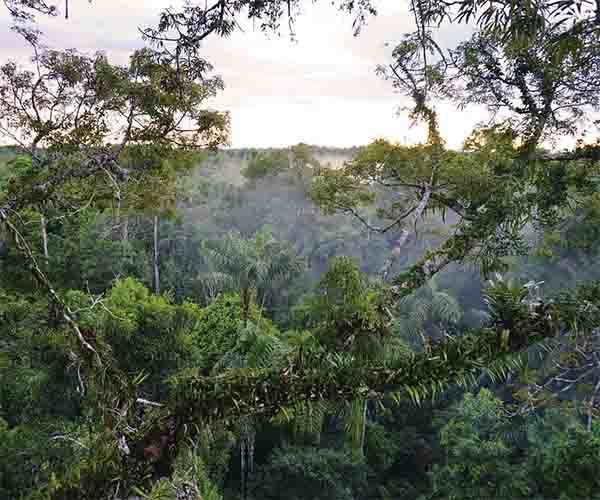 The exception are community-led initiatives. When local indigenous communities band together to create sustainable ecotourism ventures, then both the land and indigenous stewards can benefit. There are good examples of successful communities, like the Kichwa Añangu people in the Ecuadorian Amazon. Twenty years ago, this group relinquished their legal subsistence hunting and fishing rights intending to help mitigate the damage already done to local wildlife populations. Living and working within the borders of Yasuni National Park, these people conceptualized a business model that would be responsible in terms of mitigating its environmental impacts and equitable in terms of profit-distribution among its members.
The exception are community-led initiatives. When local indigenous communities band together to create sustainable ecotourism ventures, then both the land and indigenous stewards can benefit. There are good examples of successful communities, like the Kichwa Añangu people in the Ecuadorian Amazon. Twenty years ago, this group relinquished their legal subsistence hunting and fishing rights intending to help mitigate the damage already done to local wildlife populations. Living and working within the borders of Yasuni National Park, these people conceptualized a business model that would be responsible in terms of mitigating its environmental impacts and equitable in terms of profit-distribution among its members.
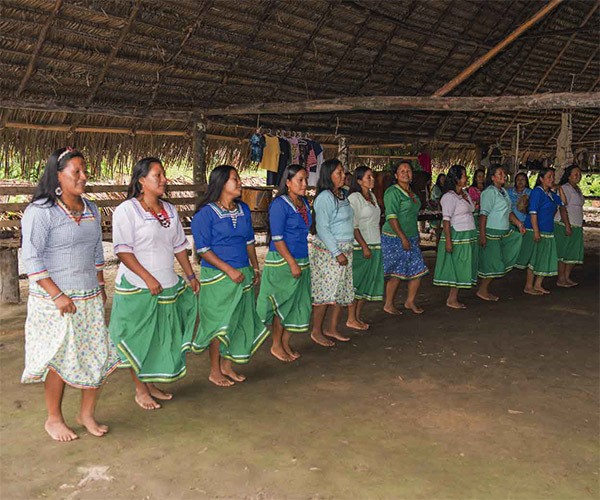 When ecotourism ventures are owned and operated by a community, collectively, it would allow direct investments, like green technologies, health care and education that even benefits neighboring communities. The mentioned Añangu, for example, have developed solar panel powered infrastructure, water treatment facilities, and a biodigester capable of producing biofuel from organic kitchen scraps and these are just some of the inventive ideas at work here. The fact is, communities have democratic decision-making process that have been vital in their success and their ability to maximize economic and social benefits for generations.
When ecotourism ventures are owned and operated by a community, collectively, it would allow direct investments, like green technologies, health care and education that even benefits neighboring communities. The mentioned Añangu, for example, have developed solar panel powered infrastructure, water treatment facilities, and a biodigester capable of producing biofuel from organic kitchen scraps and these are just some of the inventive ideas at work here. The fact is, communities have democratic decision-making process that have been vital in their success and their ability to maximize economic and social benefits for generations.
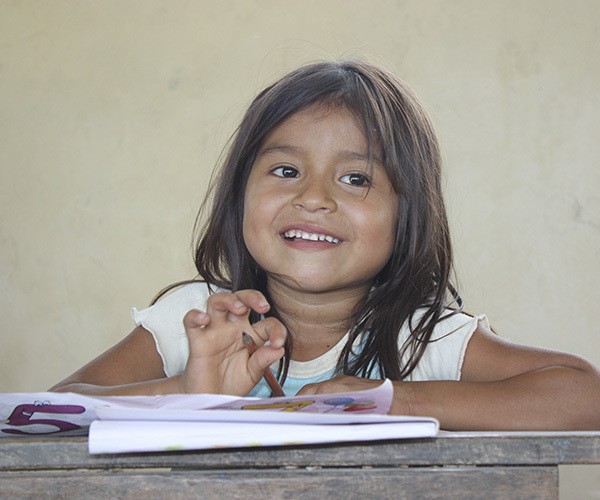 In the Amazon region, thanks to community-based tourism, local wildlife populations are also thriving. For example, the vulnerable Giant Otter, within Yasuni, has grown by 10% thanks to the habitat protection measures implemented, such as allow only non-motorized watercraft within the sanctity of their territory. With protective measures at the forefront, there is some hopeful optimism for the future of the Amazon Rainforest most vulnerable species like wild cats, primates, tapirs, and caimans, to name just a few. Unfortunately, their very existence in other parts of Ecuador and the greater Amazon Basin area is increasingly uncertain.
In the Amazon region, thanks to community-based tourism, local wildlife populations are also thriving. For example, the vulnerable Giant Otter, within Yasuni, has grown by 10% thanks to the habitat protection measures implemented, such as allow only non-motorized watercraft within the sanctity of their territory. With protective measures at the forefront, there is some hopeful optimism for the future of the Amazon Rainforest most vulnerable species like wild cats, primates, tapirs, and caimans, to name just a few. Unfortunately, their very existence in other parts of Ecuador and the greater Amazon Basin area is increasingly uncertain.
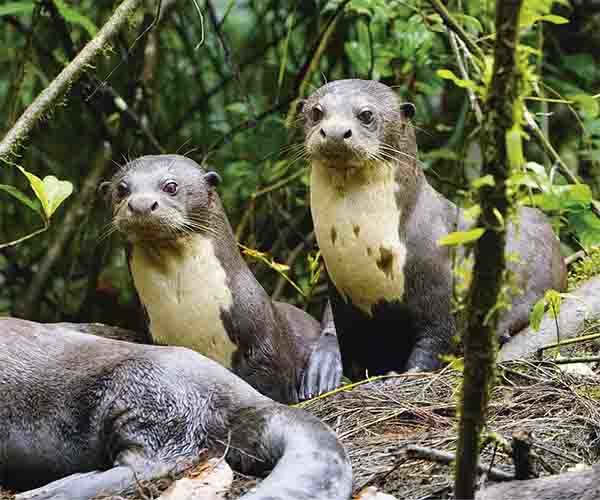 Sustainable ecotourism led by the indigenous people who have been caretakers of their land for generations is a powerful tool for self-determination in the 21st century. This is only one example of the broad and positive impact that ecotourism and indigenous stewardship can have, but it exemplifies the importance of being a responsible consumer. So when you are ready to start making travel plans, be sure to do your research so that you know where your money is going. Consider making your money go that extra mile by supporting an indigenous community in the ecological stewardship of the beautiful land you want to visit. Enjoy a wonderful holiday with the knowledge that your contribution will ensure sustainable management practices.
Sustainable ecotourism led by the indigenous people who have been caretakers of their land for generations is a powerful tool for self-determination in the 21st century. This is only one example of the broad and positive impact that ecotourism and indigenous stewardship can have, but it exemplifies the importance of being a responsible consumer. So when you are ready to start making travel plans, be sure to do your research so that you know where your money is going. Consider making your money go that extra mile by supporting an indigenous community in the ecological stewardship of the beautiful land you want to visit. Enjoy a wonderful holiday with the knowledge that your contribution will ensure sustainable management practices.
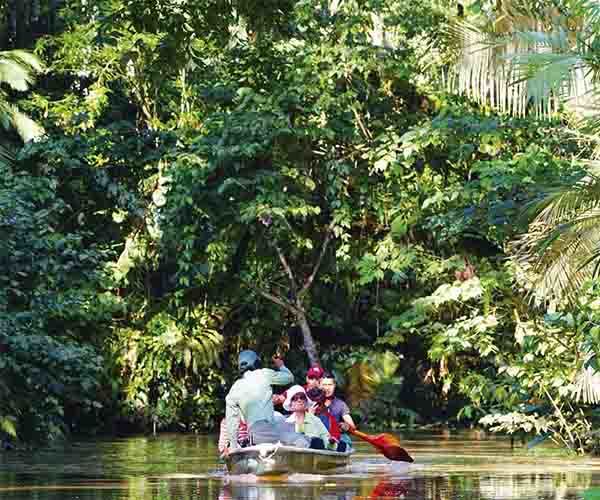 Miguel Andy is General Manager of Napo Wildlife Center. Napo Wildlife Center is an eco-lodge offering unforgettable experiences in the Amazon rainforest of Ecuador, inside Yasuni Biosphere Reserve, which is managed by the Añangu kichwa aboriginal community.
If you would like to be a guest blogger on A Luxury Travel Blog in order to raise your profile, please contact us.
Miguel Andy is General Manager of Napo Wildlife Center. Napo Wildlife Center is an eco-lodge offering unforgettable experiences in the Amazon rainforest of Ecuador, inside Yasuni Biosphere Reserve, which is managed by the Añangu kichwa aboriginal community.
If you would like to be a guest blogger on A Luxury Travel Blog in order to raise your profile, please contact us.Did you enjoy this article?
Receive similar content direct to your inbox.


Nice piece on ecotourism and you are definitely right to encourage people considering ecotourism to dig that bit deeper with their research. A few years ago, in Africa, I stayed at a lodge whose main selling point was profit share with a local tribe. When I got there the Assistant Manager, off the record, was very open with me. He explained that due to maintenance and high running costs the lodge made minimal profits and that it wasn’t exactly an even profit share. The local tribe only got 15% and that was 15% of not very much. Looking back I suppose that was something in an a area where the poverty was very evident but it wasn’t what I had expected when I had paid my deposit.
Hello Jack, thank you for sharing about your experience. It is complicated sometimes to hit the best Community led experience, as some projects say they are, but it is only marketing. Fortunately there are very good examples worldwide and visitors can really feel and see how support is being investment in Community.
Given the focus in recent times on the environment and the push over the last couple of years towards eco-friendly initiatives, I think eco considerations will be increasingly important when it comes to travel. More tourists are looking at the impact of everything from flight emissions to the types of hotels they stay in and whether they use sustainable practices. You’ve made an excellent point about being mindful of indigenous populations and communities. It’s impressive the Añangu already have the likes of solar panel power and biofuel from organic food waste.
In all honesty, while I hadn’t thought of the democratic process of community-driven initiatives in such populations, I almost counted indigenous populations and these sorts of places out of the whole ‘eco’ thing; I’ve never really thought that they’re doing damage to the environment, certainly not in the same manner much of the Western world is doing with large factories pumping out god knows what, millions of cars on the roads, excessive consumerism, and so on. Not sure if that makes sense but this has opened my eyes to the fact that not only do they not do the sort of harm that much of the world does, but they also do a lot to protect the environment, the ecosystems and the animals. That definitely deserves more recognition. Great post.
Hello Elaine, I`m glad I could touch you with this one. You know, nowdays, some governments are fighting indigenous communities as they resist deforestation and jungle destruction. Their mere presence there, is a guarantee the jungle is being protected from extractive activities. That’s why the support to indigenous initiatives are so important.
Until I read this I knew nothing of the Kichwa
Añangu people and their groundbreaking project in the Ecuadorian Amazon.
Although it was incredibly brave of the tribe to give up their hunting and fishing rights 20 years ago it seems to have been a decision showing a lot of foresight.
As their business model is thriving two decades on surely this must be an educational and inspirational model that ought to be widely distributed as a case study.
What would be even better would be if a television company executive read this post and decided to commission a documentary to give the project wider coverage as an example of the changes that successful eco tourism can bring.
Hello Roger, thank you for your contribution. One of the main problems indigenous groups have when developing a similar initiative is technical support in order to take decisions, that’s where research has an important part. Another is to let people worldwide know about their efforts, so tele or, nowadays internet help will be always well received.
Thanks. I won’t be so easily taken in by those eco-tourism tags in the future. I’ll be looking out for when it’s merely being used as a marketing slogan.
Hello John, thank you for your contribution. It is not always easy to find the accurate options, but some previous research may drive you to amazing and original places worldwide.
This was very encouraging and well-written. As somebody who was born in America, there’s a long and often forgotten history of colonialism among the Americas. Showing the perspective of tribal peoples is certainly worth considering when it comes to preserving some of the Earth’s natural beauty and its creatures. My girlfriend’s from China and I think Ecuador is one of the few places in South America where she doesn’t need a visa to visit. I look forward to going there one day and keeping it mind this cultural history that should not be forgotten.
Hello Bryan, thank you for your comments. As indigenous groups have been living for generations in their land, they are the best guardians of it. Trying to follow your question, actually Chinese nationals seems not to need a visa to enter to Ecuador, for 90 days.
Indigenous stewardship is a huge intellectual step-forward. The usual problem across the world is that the First World, the so-called developed world, always wants to lead the way and thinks that it has the intellectual superiority to impose decisions on other communities.
It is encouraging to hear of indigenous communities that using all their collective experience, assessing their needs, are taking responsibility for their future.